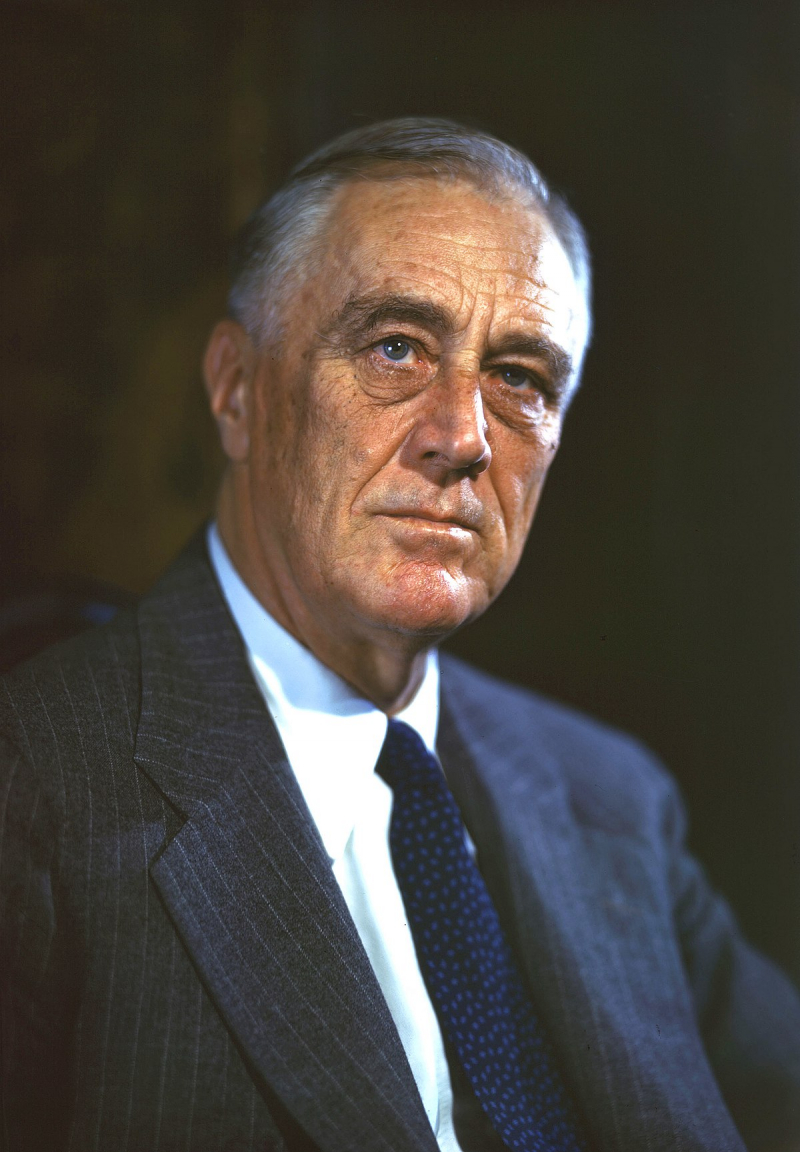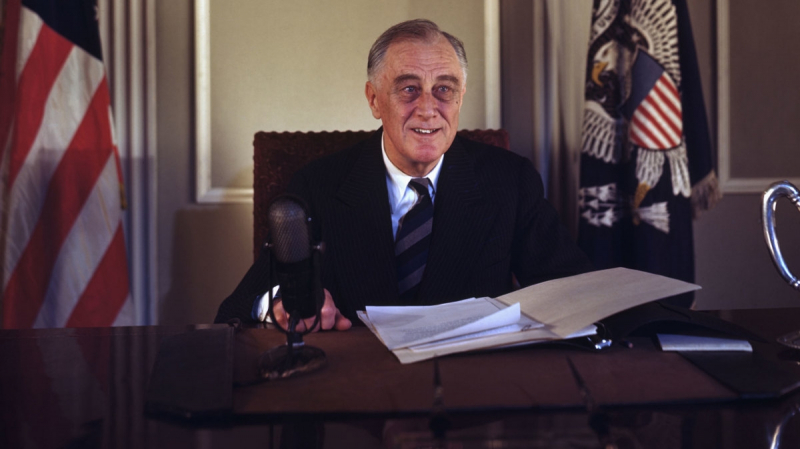Franklin D. Roosevelt

Top 25 in Top 25 People Who Built America
Franklin Delano Roosevelt (January 30, 1882 – April 12, 1945), also known as FDR, was the 32nd President of the United States. He served during the Great Depression and World War II. FDR was elected President in 1932, at the height of the Great Depression, and served until his death in 1945. During his administration, he oversaw the Federal Government's expansion and helped America shed its isolationist position as it led the way in defeating the axis countries - Japan and Germany - during World War Two. As the war ended, he helped to create the groundwork for the United Nations. Roosevelt was a major figure in both American and global politics.
FDR was elected governor of New York in 1929, which served as a springboard for his quest for the Democratic nomination for President in 1932. With America confronting an unparalleled economic crisis, with unemployment exceeding 25%, Roosevelt was able to win by a landslide, providing hope to many who had become destitute as a result of the Great Depression.
FDR pursued an expansionary fiscal strategy, similar to that espoused by John M Keynes. The government borrowed money, imposed a national income tax, and spent it on public works projects (known as the New Deal). This period also saw a transfer of power from local administrations that were unable to compete with the national government. Roosevelt also assisted in the introduction of legislation to defend the rights of workers. The New Deal did not end the economic crisis, but it did alleviate some of its harshest consequences by providing jobs and subsequently reviving the economy. Some sectors of the economy, such as building, were thriving by the end of the 1930s. The rebound was sufficient to help Roosevelt's re-election in 1936. With Nazi Germany spreading across Europe in 1940, Roosevelt chose to defy convention and become the first president to run for a third term. In 1940, he achieved another landslide victory.
FDR desired for America to become a good global citizen and to fight for certain freedoms. However, America remained a very strong isolationist policy in the early 1940s, and in 1940, he campaigned for re-election promising to stay out of World War Two - despite his own detest of Nazi Germany. However, as Britain's situation deteriorated in 1941, FDR effectively negotiated a large lend-lease package that aided the country financially when it stood alone against Hitler. When their houses were on fire, Roosevelt compared it to handing a neighbor a hosepipe. His expertise aided the bill's passage through a hesitant Congress. The bombing of Pearl Harbour in December 1941 profoundly altered America's worldview. FDR lost little time in declaring war on Japan, followed by Germany.
Many historians consider Roosevelt to be the greatest US President of all time (or at least in the top 3). He led the United States through one of the world's most challenging crises. At a time when many countries have embraced fascism, the United States democracy is being strengthened. He also established Federal unemployment assistance and the beginnings of a social safety net, which aided in keeping the country together during a period of economic disaster. Roosevelt was also crucial in leading the United States' war effort against Japan and Germany. He was a talented diplomat who successfully collaborated with Churchill and Stalin in one of the most crucial military alliances in history. When Roosevelt took office in 1932, the United States was in a deep slump and was isolated on the international stage. When he died in 1945, the United States had emerged as the world's preeminent economic and political powerhouse, and when the United States emerged as the dominant military force, he was the Allies' most influential voice.


























